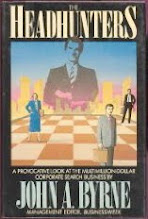Google's latest decision to change its secret algorithms to reduce the rankings of trashy websites is a long overdue and important step to improve the company's core product: search. But the bigger problem with Google is not how spammers and low-quality web publishers have figured out how to game Google's search results, something I wrote about in August of last year in "Google? Where Are You?" and "Bing vs. Google: Guess Who Wins?"
What has really eroded the company's dominance in search is good, old fashioned competition from new innovative rivals.
Social search, in the form of Facebook, Twitter, Stumbleupon, Reddit, Business Exchange, etc., has significantly and steadily diminished the relevance, value and usefulness of Google search results. All of these web enterprises have used social curation as the killer algorithm to make Google search less competitive. What your offline and online friends recommend to you is far more valuable than what an impersonal, mathematical equation spits out. This remarkable development isn't only important to users of search; it's a highly valuable insight to anyone in the high-quality content game.
My own experience with a now six-month-old website, PoetsandQuants, clearly demonstrates the power and the superiority of social search over Google's gamed algorithm approach. As readers of this blog already know, PoetsandQuants is devoted to the coverage of graduate business education. The stories on the site are substantive and thoughtful. They tackle all the meaningful issues confronting this business, from the impact of globalization to the value of an MBA. They provide highly useful and relevant information to help people make an important decision, requiring an investment of more than a quarter of a million dollars, in their professional lives.
So what does six months of traffic data at PoetsandQuants tell me about Google? The results are not merely shocking--they are nothing less than an indictment of Google's effectiveness in search, clear proof that Google is living off its earlier laurels that allowed it to become the world's preeminent search engine.
* Facebook, with fewer than 500 active monthly users on our P&Q page, has referred 12 times the number of visitors to PoetsandQuants than Google in the past six months and is gaining more ground--not less--as a key referrer in the past two months.
* Twitter, with 2,000 followers on the P&Q feed, has referred nearly 10 times the number of visitors to PoetsandQuants than Google over the same period.
* Business Exchange, a social curation product I helped create at BusinessWeek, has referred nearly 11 times the number of visitors than Google.
* Even more damning, the number of referrals from Google during the site's first six months is only 25% more than two press releases we've published on PRWeb.
What has happened to Google is an all-too-familiar problem that plagues so many companies that become big and successful: Awash in cash, they begin pursuing all kinds of other opportunities, neglecting the core product that established their greatness. Those opportunities ultimately become distractions that lead to a company's serious decline. Competition emerges to take advantage of the neglect. The incumbent pretends all is well and benefits from both the dominant lead is already has and the long lag time that it takes more nimble and innovative Davids to slay the Goliath.
We are seeing the early stages of this battle which has been in force for at least five years. The Davids have been hitting the Google Goliath on a fairly consistent basis, shots to the body that bruise but rarely penetrate. This Goliath is still on its feet, but Facebook and Twitter have scored such big hits over the past three years that the giant is beginning to sway and stumble.
Donkey Show, the novel
-
My new novel, Donkey Show, is out in trade paperback. The digital version
will come next month, with the official launch.
The idea for the novel came ba...
3 years ago










